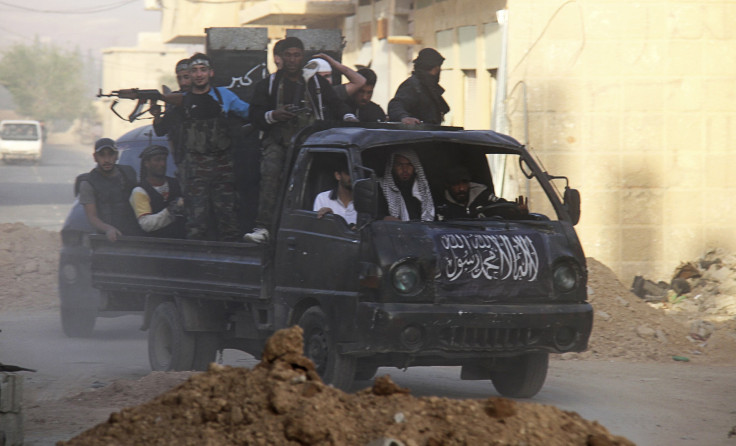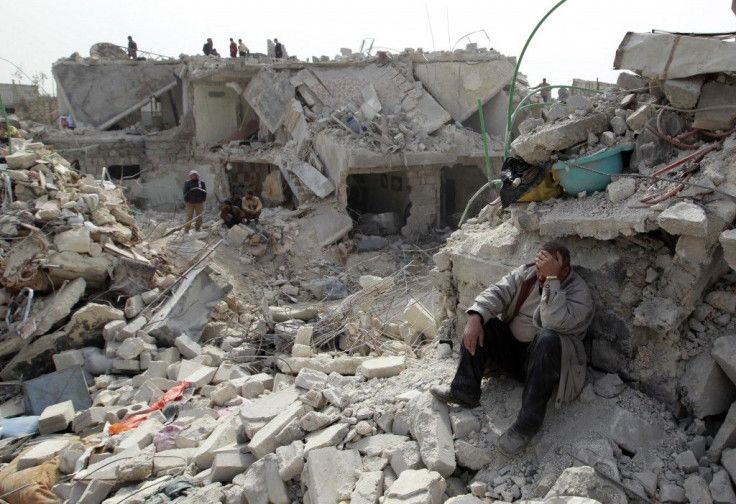James Foley Beheading: Could Graphic ISIS Video Deter News Coverage In War Zones Like Syria?

The brutal beheading of James Foley, an American journalist kidnapped in Syria almost two years ago, could make a bad situation worse for international news outlets weighing the risks of covering the world’s most dangerous conflict zones.
"We’re already seeing it,” Sherif Mansour, a program coordinator for the Committee to Protect Journalists (CPJ), said. “A lot of international media outlets are avoiding covering the conflict in Syria. We’re also seeing reports of media outlets deciding not to hire any correspondents, or take risks with their lives.”
Even before Foley’s murder, videotaped by Islamic State militants (also known as "ISIS" for Islamic State in Iraq and Syria), was broadcast on social media this week, the risks of reporting in Syria were well known. According to data compiled by CPJ, the Middle Eastern country -- torn apart by civil war for the last two years -- is now the most dangerous in the world for journalists. At least 69 journalists have been killed there since an uprising to overthrow President Bashar Assad began in 2011. More than 80 more have been kidnapped, including 65 in the last year alone. Foley was abducted on Thanksgiving Day in 2012, believed to be taken at gunpoint from a taxi he hailed in Binnish, a town in northwestern Syria.
Delphine Halgand, U.S. director of Reporters Without Borders, said efforts by jihadists to spread terror and quash the press are having chilling effects in a country that desperately needs the media to tell its story to the rest of the world. “Aside the human toll, news coverage is one of the war’s collateral victims,” she said. “Syria must not disappear from the map.”
It’s a concern confirmed by war reporters like Tom A. Peter, who covers the Middle East for the Christian Science Monitor and other publications. Peter told the International Business Times on Wednesday that he and many of his colleagues began to pull back from Syria after the kidnappings and other incidents increased. “The last trip I made in there was in May 2013,” he said. “Steadily, anyone I know who has worked in Syria, who I would consider a safe and responsible person, has more or less stopped going in, and a lot of news organizations have reined in their coverage.”
Journalists know that there will be risks associated with going into a war zone, of course, but with news organizations big and small getting by with scarce resources that seem to get scarcer ever year, editors have to be increasingly discerning about how they allocate their budgets for foreign coverage. A high-profile killing, Mansour said, could serve to aggravate what is an already difficult decision for news outlets. “They’re trying to strike the right balance,” he said. “They want to tell the story, and they don’t want to help ISIS and brutal forces by not covering the story, but there is a lot to be done to make sure journalists are safer.”
Mansour added that, while there will always be risks, kidnappings and killings speak to the need for all parties -- from news organizations, to governments, to journalists themselves -- to make sure war correspondents are properly trained and prepared for the realities on the ground.
Meanwhile, the international news community believes that Syrian rebels have their own role to play. Last year, representatives from 13 international news organizations -- including the New York Times, the Assocated Press, Getty Images and others -- wrote a letter to the armed opposition in Syria asking it to commit itself to assuring that journalists there are “secure from the threat of kidnaping.”

But much conflict-zone reporting in the most dangerous areas is done by freelancers who may not have the full financial support of the organizations that publish their stories. According to CPJ, only 17 percent of the journalists killed around the world since 1992 were freelancers, but in Syria that number jumps to almost half. And it’s freelancers, Mansour said, who are more likely to have to battle with editors to get the resources they need. “We’re seeing that struggle happen between media outlets and the contractors on the ground, and freelancers who do not have sufficient coverage or insurance,” he said.
Peter, who covered the Middle East for seven years, was a contract employee with Christian Science Monitor during his time there, meaning he was on staff but had to pay his own medical insurance and benefits. It’s a costly endeavor to say the least. To get insurance that would cover him in a war zone, he had to pay $2,700 for a “Hostile Environment” training course in the U.K. Once trained, the insurance policy cost him $600 a year. He said the first time he went to Iraq, in 2006, he had no insurance at all -- a circumstance he said is not uncommon for younger journalists who may view conflict-zone reporting as a labor of love.
And that journalistic passion can sometimes be exploited: Cash-strapped news organizations know they can take advantage of brave reporters who are willing to go over on their own. “Oftentimes, editors want coverage from dangerous places, but they don’t want to pay for it,” Peter said. “I’d have a hard time not believing that part of the business model for international news relies on freelancers who want to get published so badly that they’re willing to pay their own expenses and oftentimes take a loss to report a story.”

Some news organizations may even try to “piggy back” off a competitor -- that is, solicit work from journalists who are already on assignment from another outlet. “It happens across the board, with all my friends who do conflict work,” Peter said. “All the time you get people who say things like, ‘Oh, we’d love some stories from Iraq. If you’re in the area, why don’t you do that?’ You know, like I’d just be hanging out in Baghdad.”
Given Syria’s already established reputation, Peter doesn’t think Foley’s death will keep journalists away anymore than they’re already staying away. However, he agrees with CPJ that news organizations should take greater steps to work with journalists -- freelance or otherwise -- to ensure that war reporters know what they’re up against, and are prepared for it. “Unless you’re working for someone like CNN or BBC, there is no security adviser telling you, ‘Do this or don’t do that,’” Peter said. “Often, it comes down to the individual judgment of the reporter. So someone like Jim Foley was kind of making his own calls.”
Got a news tip? Email me. Follow me on Twitter @christopherzara.
© Copyright IBTimes 2025. All rights reserved.






















